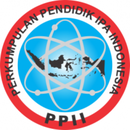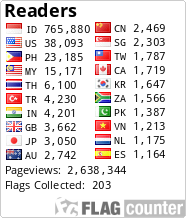Developing HOT-LAB-Based Physics Practicum E-Module to improve Practicing critical thinking skills
DOI:
https://doi.org/10.21831/jser.v5i2.41904Keywords:
21st Centuries Skills, Critical Thinking Skills, E-Module, HOT-LABAbstract
Downloads
References
Aji, R. F. (2007). Belajar mudah penelitian: untuk guru karyawan dan peneliti pemula.
Brooks, J. J. G., & Brooks, M. G. (1999). In Search of Understanding: The Case for Constructivist Classrooms. Association for Supervision and Curriculum Development, 1–136. http://books.google.com/books?hl=en&lr=&id=9W_VB5TjxxoC&pgis=1%5Cnhttps://books.google.co.uk/books?hl=en&lr=&id=9W_VB5TjxxoC&oi=fnd&pg=PR7&dq=+In+search+of+understanding:+The+case+for+constructivist+classrooms.+Association+for+Supervision+and+Curriculum+D
De, S. (1933). Thinking to The Educative Process , D . C . Heath and Company , 1933 ,.
Diana, N., Karyanto, P., Suciati, & Indriyati. (2015). Penerapan E-Module Berbasis Problem-Based Learning untuk Meningkatkan Kemampuan Berpikir Kritis dan Mengurangi Miskonsepsi pada Materi Ekologi Siswa Kelas X MIPA 1 SMA Negeri 5 Surakarta Tahun Pelajaran 2014 / 2015 The Application of E-Module Based on Pro. Seminar Nasional XII Pendidikan Biologi FKIP UNS.
Eka Astika, Sri Anggraeni, & Bambang Supriatno. (2020). Analisis Komponen Penyusun Desain Kegiatan Laboratorium Enzim Katalase. Biodik, 6(3), 343–356.
https://doi.org/10.22437/bio.v6i3.9469
Hikmawati, H., Kosim, K., & Sutrio, S. (2019). Desain Perangkat Pembelajaran Fisika Dengan Metode Real Experiments Dan Virtual Experiments. ORBITA: Jurnal Kajian, Inovasi Dan Aplikasi Pendidikan Fisika, 5(2), 88. https://doi.org/10.31764/orbita.v5i2.1303
Hoftein, A., & Lunetta, V. N. (2003). The laboratory in science education: Foundation for 21st Century. Science Education, 88(1), 28–54.
Kemendikbud. (2017). Panduan Praktis Penyusunan E-Modul Tahun 2017. Direktorat Pembinaan SMA Ditjen Pendidikan Dasar Dan Menengah. https://awan965.files.wordpress.com/2017/09/panduan_penyusunan-e-modul-2017_final_edit.pdf
Laelasari, I., & Adisendjaja, Y. H. (2018). Mengeksplorasi Kemampuan Berpikir Kritis Dan Rasa Ingin Tahu Siswa Melalui Kegiatan Laboratorium Inquiry Sederhana. Thabiea : Journal of Natural Science Teaching, 1(1), 14. https://doi.org/10.21043/thabiea.v1i1.3879
Laili, I. (2019). Efektivitas Pengembangan E-Modul Project Based Learning Pada Mata Pelajaran Instalasi. Jurnal Imiah Pendidikan Dan Pembelajaran, 3, 306–315. https://ejournal.undiksha.ac.id/index.php/JIPP/article/download/21840/13513
Lastriningsih, L. (2017). Peningkatan berpikir kritis dan prestasi belajar melalui metode inquiry pada siswa kelas IV SD. Jurnal Prima Edukasia, 5(1), 68–78. https://doi.org/10.21831/jpe.v5i1.7714
Luckie, D. B., Smith, J. J., Cheruvelil, K. S., Fata-Hartley, C., Murphy, C. A., & Urquhart, G. R. (2013). The "Anti-Cookbook Laboratory": Converting "Canned" Introductory Biology Laboratories to Multi-week Independent Investigations. Proceedings of the Association for Biology Laboratory Education, 34(January), 196–213. http://www.ableweb.org/volumes/vol-34/luckie/supplement.htm
Makiyah, Y. S., Malik, A., Susanti, E., & Mahmudah, I. R. (2019). Higher order thinking real and virtual laboratory (HOTRVL) untuk meningkatkan keterampilan abad ke-21 mahasiswa pendidikan fisika. Diffraction, 1(1).
Malik, Adam ; Setiawan, Agus ; Suhandi, Andi ; Permanasari, A. (2018). Model Higher Order Thinking Laboratory (HOT-Lab).
Nurhadi, A. (2018). Manajemen Laboratorium Dalam Upaya Meningkatkan Mutu Pembelajaran. Tarbawi: Jurnal Keilmuan Manajemen Pendidikan, 4(01), 1. https://doi.org/10.32678/tarbawi.v4i01.832
Putra, R. P., & Anjani, R. A. (2020). Analisis Pemahaman Siswa Kelas 12 di SMAN 1 Cileunyi terhadap pembelajaran Fisika Online selama pandemi CoVid-19. Jurnal Profesi Keguruan, 6(2), 167–173.
Putra, R. P., Silvianti, N., Idris, S. F., & Nabilla, N. (2021). Uji Perbandingan Virtual Lab dengan Real Lab pada Hukum Archimedes. Radiasi : Jurnal Berkala Pendidikan Fisika, 14(1), 23–33. https://doi.org/https://doi.org/10.37729/radiasi.v14i1.897
Rofiah, E., Aminah, N., & Ekawati, E. (2013). Penyusunan Instrumen Tes Kemampuan Berpikir Tingkat Tinggi Fisika Pada Siswa Smp. Jurnal Pendidikan Fisika Universitas Sebelas Maret, 1(2), 120699.
Sapriadil, S., Setiawan, A., Suhandi, A., Malik, A., Safitri, D., Lisdiani, S. A. S., & Hermita, N. (2019). Effect of Higher Order Thinking Virtual Laboratory (HOTVL) in Electric Circuit on Students' Creative Thinking Skills. Journal of Physics: Conference Series, 1204(1). https://doi.org/10.1088/1742-6596/1204/1/012025
Serungke, M., Muhibbuddin, & Suhrawardi. (2020). Implementation of problem-based learning (PBL) with virtual laboratory to improve students' critical thinking and achievement. Journal of Physics: Conference Series, 1460(1), 0–6. https://doi.org/10.1088/1742-6596/1460/1/012134
SETIABUDI NINGTYAS, A., & ROSDIANA, L. (2019). Respon Peserta Didik Terhadap Keterlaksanaan Pembelajaran Menggunakan Model Guided Inquiry. Pendidikan Sains, 7(2), 9–13.
Suarsana, I. M., & Mahayukti, G. A. (2013). Pengembangan E-Modul Berorientasi Pemecahan Masalah Untuk Meningkatkan Keterampilan Berpikir Kritis Mahasiswa. Jurnal Nasional Pendidikan Teknik Informatika (JANAPATI), 2(3), 193. https://doi.org/10.23887/janapati.v2i3.9800
Syafitri, Y., Festiyed, Dwiridal, L., & Afrizon, R. (2019). Pembuatan E-Modul Berorientasi Higher Order Thinking Skills (HOTS) Untuk Pembelajaran Fisika Pada Materi Kalor dan Teori Kinetik Gas di Kelas XI SMA/MA. Pillar of Physics Education, 12(4), 777–784.
Wena, I. M. (1970). Pengembangan E-Module Bermuatan Model Perubahan Konseptual Dalam Pembelajaran Fisika Di Sma. Jurnal Santiaji Pendidikan (JSP), 1(1), 97–110. https://doi.org/10.36733/jsp.v1i1.464
Downloads
Published
How to Cite
Issue
Section
Citation Check
License
Journal of Science Education Research allows readers to read, download, copy, distribute, print, search, or link to its articles' full texts and allows readers to use them for any other lawful purpose. The journal allows the author(s) to hold the copyright without restrictions. Finally, the journal allows the author(s) to retain publishing rights without restrictions
- Authors are allowed to archive their submitted article in an open access repository
- Authors are allowed to archive the final published article in an open access repository with an acknowledgment of its initial publication in this journal











